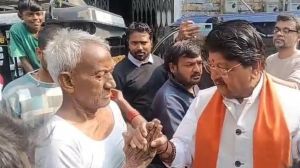Act of change
This is one act that powered common man with the right to obtain information about the government.
As we celebrate six decades of being a republic,here are six acts given by this decade that changed the life of common man in the country
Right to Information Act 2005
This is one act that powered common man with the right to obtain information about the government. Right to Information Act 2005 mandates timely response to citizen requests for government information. It is an initiative taken to provide an RTI Portal Gateway to the citizens for quick search of information on the details of first Appellate Authorities,PIOs amongst others. A revolutionary act in the history of Independent India,the act is welcomed for creating transparency in democracy.
Section 377 scrapped
Another revolutionary decision was taken in the year 2009 when the Delhi High Court struck down the provision of section 377 of the Indian Penal Code that criminalised consensual sexual acts of adults in private,holding that it violated the fundamental right of life and liberty and the right to equality as guaranteed in the Constitution. The Lesbians Gays Bisexuals and Transgender (LGBT) community greeted each other with hugs calling this decision a historic one.
Domestic Violence Act
The Protection of Women from Domestic Violence Act came into effect from 2006. Primarily meant to provide protection to the wife or a female live-in partner from violence at the hands of the husband or the male live-in partner or his relatives,the law also extends its protection to mother,sisters and widows. An important feature is a woman’s right to secure housing. It provides for her right to reside in the matrimonial or shared household,whether or not she has any title or rights in the household.
Globalisation of India
While the country witnessed an Information Technology revolution in the last decade,the foundation was laid in early 90s. The idea behind the new economic model known as Liberalisation,Privatisation and Globalisation in India (LPG),was to make the Indian economy one of the fastest growing economies in the world. An array of reforms was initiated with regard to industrial,trade and social sectors to make the economy more competitive. The economic changes initiated have had a dramatic effect on the overall growth of the economy. It also heralded the integration of the Indian economy into the global economy. It was the same model that further resulted in an IT and boom that created countless job opportunities in the country making India the global IT hub.
Cyber law
The abuse of computers has also given birth to a gamut of new age crimes that are addressed by the Information Technology Act,2000. Cyber crimes can involve criminal activities that are traditional in nature,such as theft,fraud,forgery,defamation and mischief,all of which are subject to the Indian Penal Code. The act covers crimes such as hacking,virus/ worm attacks,DOS attack,cyber terrorism,IPR violations,credit card frauds,EFT frauds,pornography unauthorised access and hacking,email spoofing,spamming,sending malicious codes through email,email frauds and so on.
Right to Education Bill
The right of children to free and compulsory education bill,2009,seeks to provide education to children aged between six to 14 years. HRD Minister Kapil Sibal described the bill as- harbinger of a new era for children to meet the challenges of the 21st century. The Bill seeks to do away with the practice of schools taking capitation fees before admission and subjecting the child or parents to any screening procedure. The Bill also seeks to achieve ten broad objectives which include free and compulsory education,obligation on the part of state to provide education,nature of curriculum consistent with Constitution,quality,focus on social responsibility and obligation of teachers and de-bureaucratisation in admissions.







